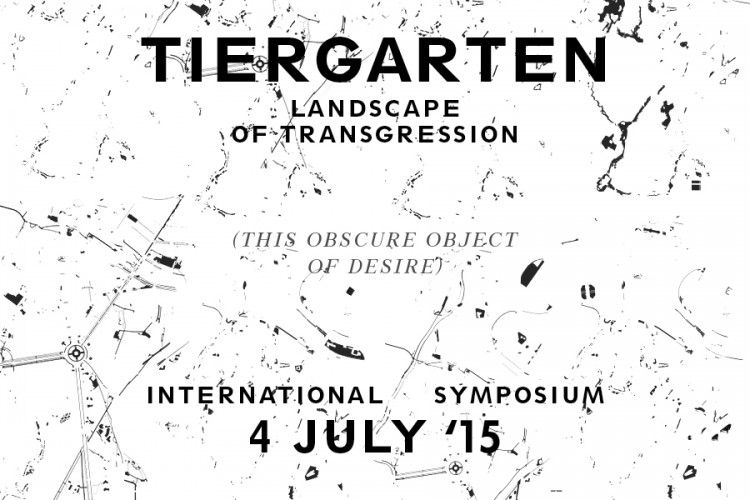
Tiergarten, Landscape of Transgression (This Obscure Object of Desire)
“If future norms of society will be dominated by the mantra of sustainability, convenience and security as opposed to liberté, egalité, fraternité, the question is where remains the space for the creative process of transgression” asked Rem Koolhaas during the opening of the Architecture Biennale in Venice in June 2014. Koolhaas’ question is a call to reconsider anew the urban realm and it is adopted in the conference to view Tiergarten, Berlin’s oldest park, as a unique and idiosyncratic landscape of transgression.
Tiergarten transgresses heritage, ecology, urbanism, and humanism, existing as a precious anomaly and a model for future environments in an ever expanding sea of urbanization. Tiergarten’s transgression can become a key to shift established ways to talk about the city. The conference aims to evaluate several aspects of urban space that question and expand the current discourse on sustainability, for instance unbridled plant growth and close proximity of species, the unmaintained, the incommensurable, the extraterritorial, the outlaw, the simultaneity of (contradicting) histories, to mention some. The conference is divided into four thematic sections: 1) Transgressing Heritage; 2) Transgressing Ecology; 3) Transgressing Urbanism; 4) Transgressing Humanism.
With Alessandra Ponte (keynote), Fahim Amir, Michael Baers, Martin Conrads, Eva Simone Hayward, Gunnar Klack, Stefano Mancuso, Franziska Morlok, Sandra Parvu, Karin Reisinger, Luise Rellensmann, Chris Wilbert, Piero Zanini
Concept: Sandra Bartoli; Organized by Sandra Bartoli and Chair for Urban Design and Urbanization TU Berlin Jörg Stollmann in cooperation with Haus der Kulturen der Welt
Poster and program pamphlet: design by YUKIKO